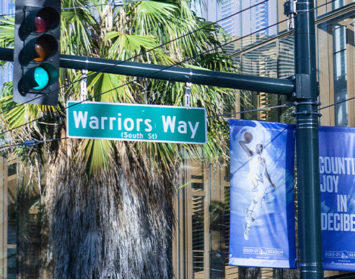With 2007 now here, there’s been plenty of new-year prognostications on the future state of the economy, the emerging political landscape nationally and locally, weather patterns, whether Brad and Angelina will, in fact, get married — and Lord only knows what else.
Most of all this appears to expand well beyond what impacts the commercial real-estate industry in San Diego. However, the state of commercial real estate is directly impacted by all things social, civic and economic — so much so, that we need to look beyond the focus of this column now and then to identify and discuss those issues.
Such will be the task of today’s offering. People make New Year’s resolutions; companies and other organizations run off to retreats to hammer out strategic plans for the coming year. Why shouldn’t a city or region do the same?
Let’s list and discuss a couple of 2007 resolutions that might make and keep our region a better place to live, work and play.
The city of San Diego is the biggest stakeholder when it comes to resolving to do better in the coming year. The city has been beset by financial neglect, excessive pension costs, overly casual governance until this past year, and a host of other ills that have soiled its rightful title as America’s Finest City.
Potholes and gang violence abound, as do powerful and self-serving public employee unions whose singular mission is to protect the status quo. On the other hand, police officers do not abound in San Diego. Increasing numbers of well-trained and dedicated officers are fleeing the city, bound for municipalities and other agencies that are financially and politically more stable.
For some time, San Diego has needed a political messiah which we, in fact, now have in place. Mayor Jerry Sanders has been in office now a little more than a year. Our first resolution for 2007 is that there should be sufficient public and political support behind the mayor to enable him to put into place the financial, political, and ethical reforms necessary to re-establish San Diego as a viable municipality. Sanders has demonstrated past competence in building consensus to resolve critical problems affecting the organizations he has shepherded. To do so here, will require cooperation on the part of the City Council, employee unions, financial institutions, constituents — and yes, even the city attorney.
Resolved that the city’s business and civic community muster that cooperation to support and help the city regain its rightful place as a leading urban center.
The second issue requiring a New Year’s resolution is the future of our city’s NFL franchise of 46 years, the San Diego Chargers. This past year, we have been confronted with the soul-shuttering news that the team will be forced to look elsewhere for its home with such nonsense options as National City and Chula Vista being the “better” ones.
Both the city of San Diego and the club need the Chargers to stay in the city — specifically Mission Valley where the 166-acre Qualcomm Stadium and parking lot are situated. That site alone is worth hundreds of millions of dollars. What will happen if the Chargers leave the city and that massive piece of prized real estate because we fail to provide the team with a more suitable stadium? We still will have an obsolete — and now empty — concrete structure that will need to be torn down and replaced to accommodate anything more than the San Diego State Aztecs and assorted tractor pulls and destruction derbies.
Resolved that there be a renewed effort on the part of the city to work with the Chargers owners to renew interest in reconfiguring the Mission Valley site for our city’s pride and joy. There’s much more at stake than an NFL division or even Super Bowl championship.
Finally, there’s the pressing need to solve more problems on a regional basis. No man or city is an island unto itself. There are 19 incorporated cities in our county, in addition to unincorporated areas larger than many states. We have begun to deal with some problems that extend beyond city limits, such as air pollution and traffic through such efforts as SANDAG, the Air Pollution Control District and various county agencies. However, there are other issues that require regional cooperation.
Resolved that leaders in our region’s cities and county begin thinking about more regional and inter-agency solutions to such problems as homelessness, illegal immigration and gangs, to name but three maladies. Some of these will require heightened attention at the state and federal levels through effective lobbying and local government-directed advocacy. Cities need to reach out for regional approaches to problems they have not been able to address at their respective local levels. More regional cooperation and less turf protection is a better way to approach solving these and other problems.
There will be plenty of credit to spread around if we make 2007 the year in which we tackle and solve these and other problems. Likewise, there will be plenty of blame if we don’t.
Jason Hughes is founder of Hughes Marino, an award-winning commercial real estate company with offices across the nation. A pioneer in the field of tenant representation, Jason has exclusively represented tenants and buyers for more than 30 years. Contact Jason at 1-844-662-6635 or jason@hughesmarino.com to learn more.









